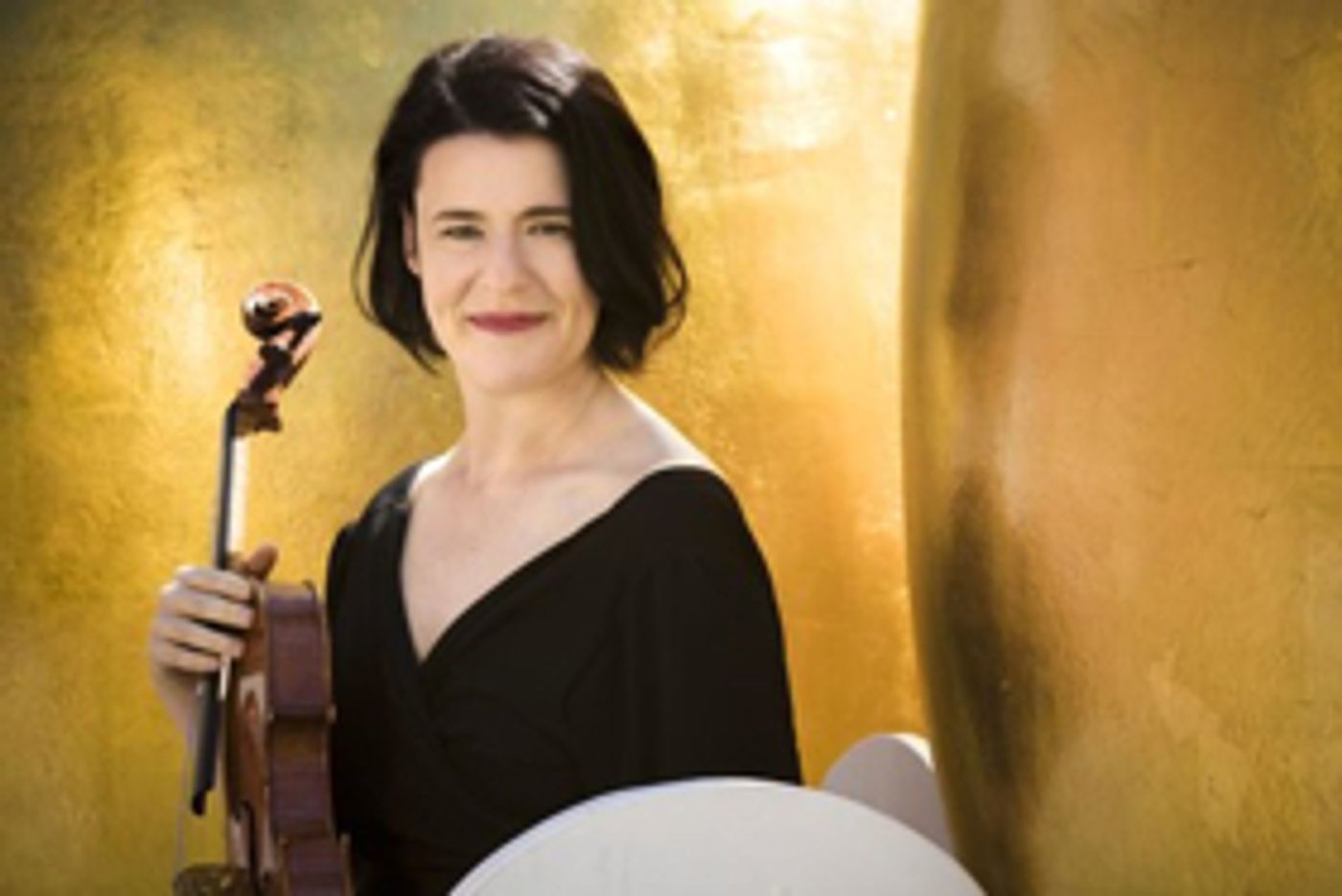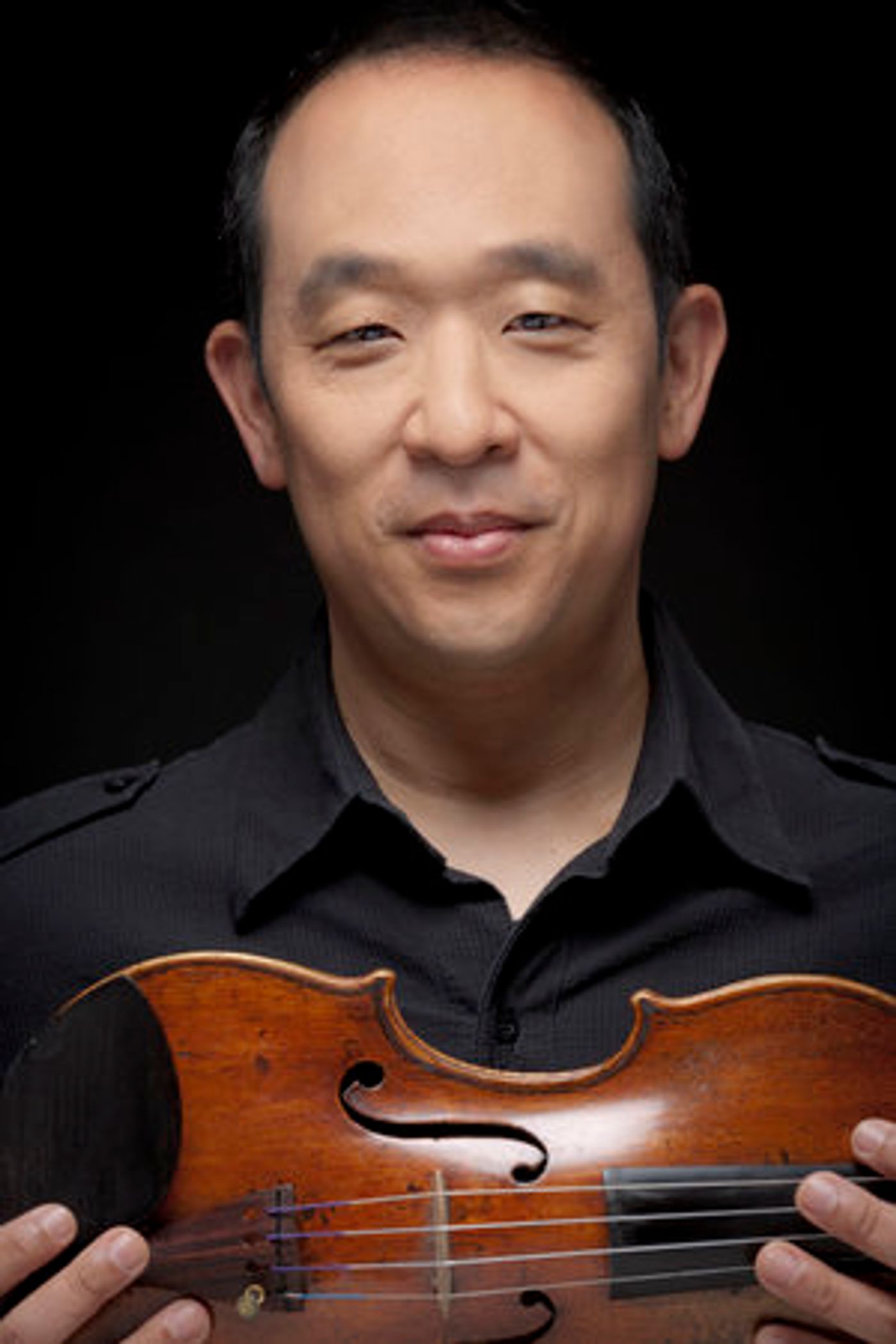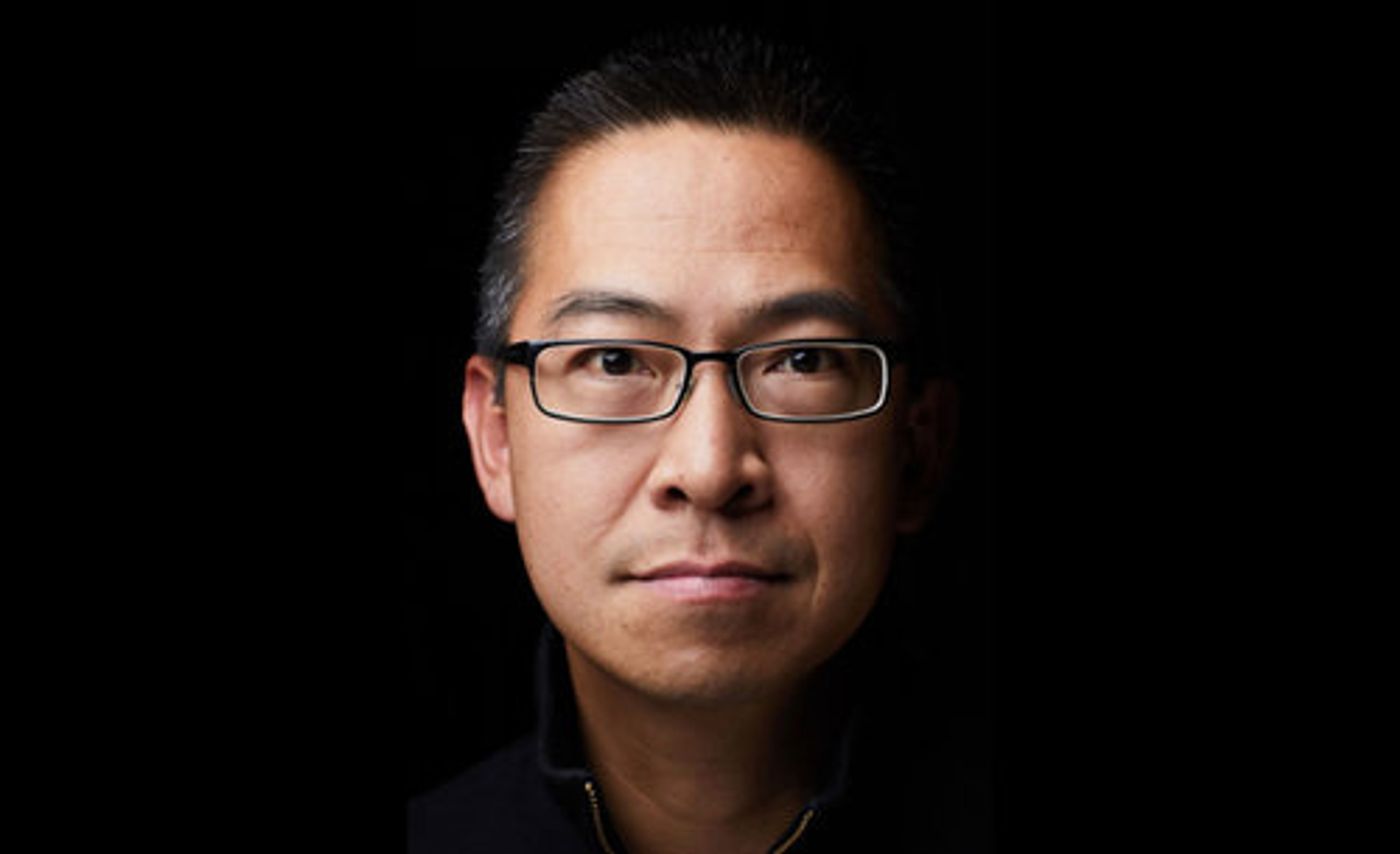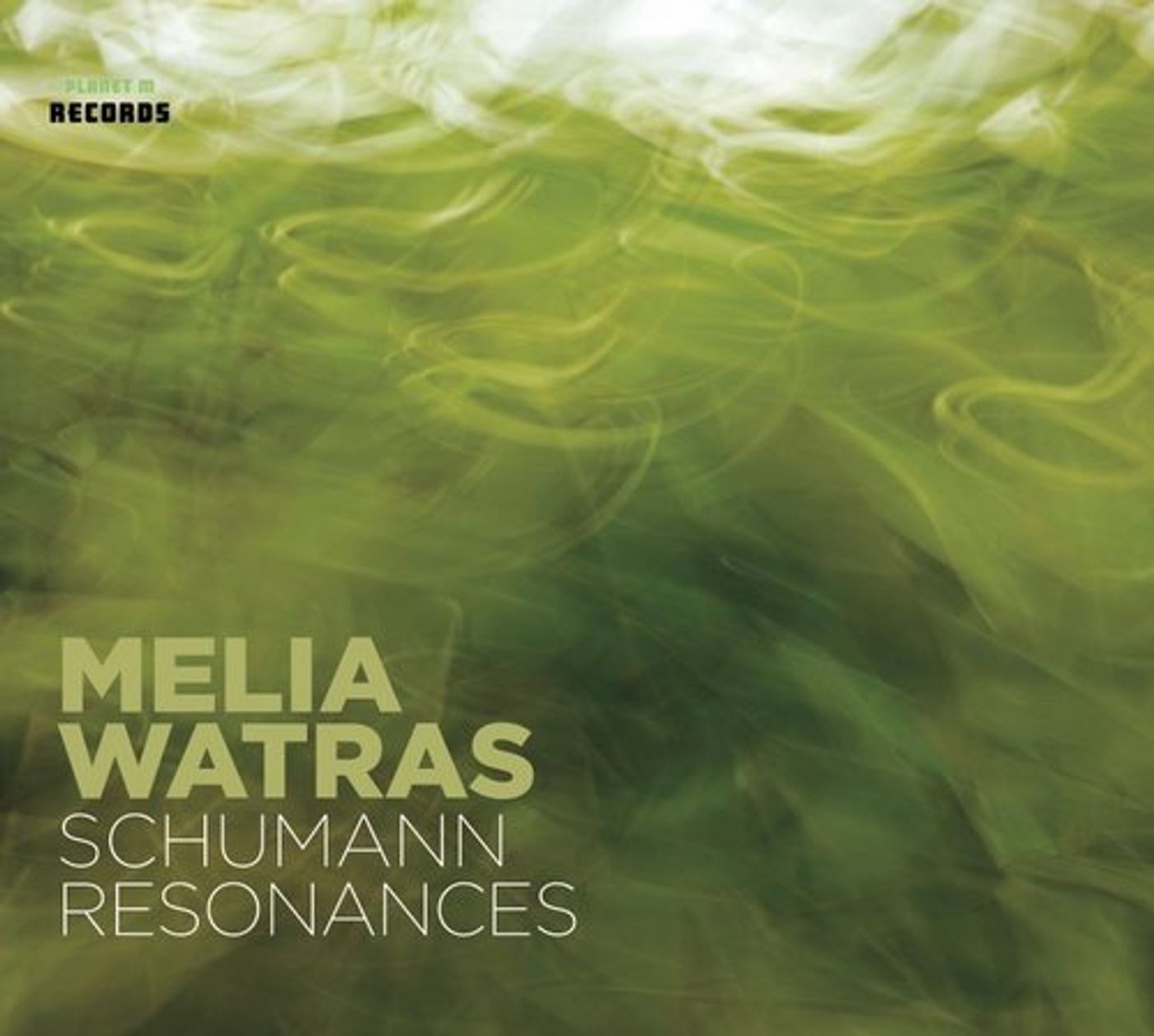Watras, Lim Start New Year with New Label and CD

Photo Michelle Smith-Lewis
On Feb. 8, 2019, acclaimed Seattle violist/composer Melia Watras and her violinist husband Michael Jinsoo Lim will release a new album, Schumann Resonances, on Planet M Records, a freshly minted independent record label that the two artists are launching together. The Seattle-based and artist-led label specializes in classical music with an emphasis on new music.
Watras and Lim's supporting cast consists of several highly respected local guest artists: Winston Choi, piano; Galia Arad, voice; Matthew Kocmierski, percussion; and Coung Vu, trumpet. The CD also includes world premieres of compositions by Vu, University of Washington School of Music Director Richard Karpen, and Watras herself.
Schumann Resonances was recorded in July and August 2016 at Nordstrom Recital Hall at Benaroya Hall in Seattle, and was produced by Judith Sherman, with Dmitriy Lipay as engineer and Jeanne Velonis, editing assistant.
Erica Miner: Melia, congratulations are in order in more ways than one: a new CD and a new record label! Tell us about the origins of these two new very important developments.
Melia Watras: Thank you, Erica! My husband, Mike (Pacific Northwest Ballet Concertmaster Michael Jinsoo Lim), and I have a lot of experience as recording artists: we've done over a dozen chamber music recordings, Mike has served as producer on a number of albums, and as I planned for the release of my sixth solo disc, it just seemed like the right time for us to start our own label. Planet M Records gives us a more direct path from artist to listener. We're really excited to share some great music with the public!

Photo Michelle Smith-Lewis
My new album, Schumann Resonances, which arrives on February 8, 2019, will be Planet M's first release. All of the works on the disc are born out of the idea of using Robert Schumann's Märchenbilder (Pictures from Fairyland), Op. 113, as a starting point for exploring new music. The only guideline given to the composers was to take inspiration from fairy tales, other folklore, including folk songs, or the Schumann piece itself.
EM: What made you decide to use Robert Schumann's Märchenbilder as the basis, a "point of departure," if you will, for the very forward-looking compositions in the first part of this album?
MW: Märchenbilder is one of the great pieces of the viola repertoire, filled with imagination and color. This album is a way of looking at this important piece through different perspectives and trying to forge a connection between past and present. I love going to art museums, and I'm always taken by how the surroundings can affect the way you view a painting. Even just looking at colors, if you take the color blue and put green on one side, yellow on the other, the blue will look different than if you had purple and red surrounding it. I feel there is a similar effect when we program an album, or concert.
EM: How do the utterly romantic four movements of the Märchenbilder relate to the Resonances?
MW: In the album's eponymous work, which has the same instrumentation as Märchenbilder (viola and piano), I quote Schumann harmonically, using a progression from his second movement and one from the third. Schumann Resonances (the piece) also explores different resonances, literally, with extended techniques on the piano: using dampers, paper clips, muting individual strings, silently depressing keys to create overtones (which Schumann uses in his piano piece Carnaval, Op. 9), and also with the viola playing directly into the inside of the piano. The use of the inside of the piano by both the pianist and violist stems from my admiration for experimenters such as Henry Cowell, Luciano Berio, John Cage, George Crumb, and Charles Ives. There is, of course, a conceptual connection between the Schumann and the entire album.
EM: The evocative words of Michael Jinsoo Lim that you included in the CD notes for Schumann Resonances seem also to evoke the inspiration quoted for Creusa, the first movement of Source for viola, percussion and violin. Is there a connection between these two very feminine verses?
MW: That's such an interesting observation! Mike's poem is his personal reaction to listening to my piece Schumann Resonances for viola and piano. His words and those from the Aeneid
are not intentionally connected. However, he did hear me practicing Vergil's lines, and he also knew that I was drawn to all feminine perspectives in the inspirations for Source. So, perhaps it did influence him subconsciously!
EM: The combination of solo viola and trumpet in Cuong Vu's Porch Music is quite an unusual one. Do you think improvisation in classical music is the wave of the future?

Photo Steve Korn
MW: I agree that the combination of solo viola and trumpet is unusual! I had not heard of it before this piece. I frankly asked for it because I wanted to continue working with Cuong. I had the good fortune of performing and improvising with Cuong in the past, and I really love his sound. He has a sensitivity and artistry that works well in any setting, and I think his piece wonderfully combines improvisation with notated material.
Improvisation has been a part of Classical performance for a long time. There is a strong improvisation tradition certainly from the Baroque period, and, it is making its way back to Classical music now, as you see more and more players improvising in a modern way. I find improv to be an important part of my creative process, both as a performer and composer. I have my students improvise at UW, because I think whether or not one chooses to be an improviser, it feeds the way you approach written music, and how to be an artist.
EM: Tertium Quid is the third work written for you by your colleague Richard Karpen. Is there perhaps a fourth in your collective futures?

Photo Steve Korn
MW: Richard was someone I wanted to work with even before I got the job at UW. He is someone who continues to push music forward, and I have really enjoyed collaborating with him. We do have another project coming up that I'm very excited about! I'll be premiering a new viola concerto by Richard, with Ludovic Morlot conducting the Seattle Symphony at Meany Hall at UW on March 15, 2019. I believe it will be connected to an earlier piece he wrote for me and my husband called Bicinium.
EM: That is so exciting, Melia. I can't wait to see that, and I wish you the greatest success with your new album and record label. Kudos!
Schumann Resonances, new release, Planet M Records; Catalog # PMR-001. Can be pre-ordered on iTunes, Amazon and at http://www.planetmrecordsseattle.com.

Photo credits: Michelle Smith-Lewis, Steve Korn
Videos

